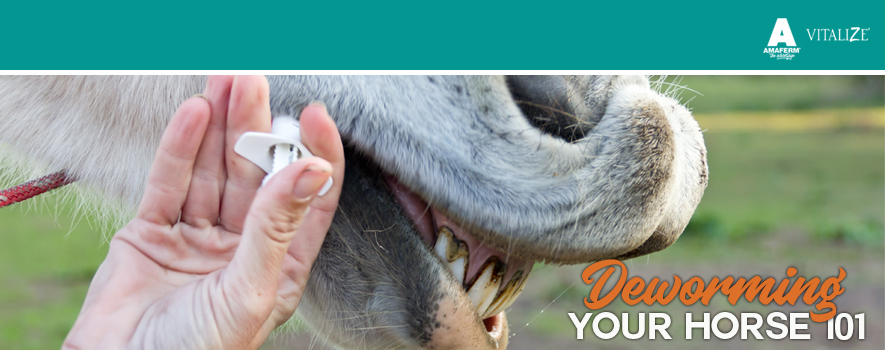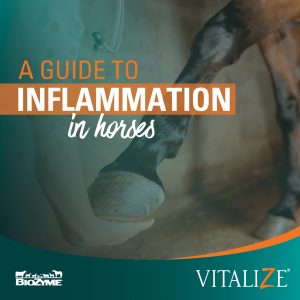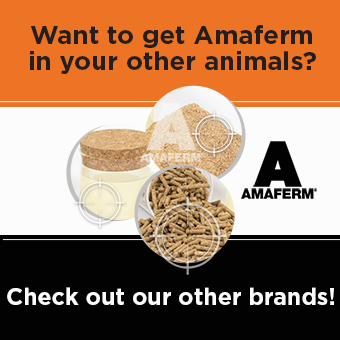
The first day of spring is just around the corner, which means more time at the barn, riding outside, horse shows and vital barn-management practices like deworming your horse. Deworming your horse strategically is essential to maintaining good health. Not only does the risk of colic increase with parasite burden, but these tiny worms also use the horse as a host and, in turn, decrease its absorption of nutrients, body condition, immune system, performance, effectiveness of vaccines and overall health. Therefore, it is important to implement a deworming program for your horse.
What is strategic deworming?
You go to the feed store and pick up the dewormers you always use in the springtime. You’re ready to go! Or are you? Before deworming your horse, it is important to know which kinds of parasites he or she is vulnerable to, and which products will treat those specific kinds. To identify which are affecting your horse, a fecal egg count test can be performed by your veterinarian. Without the use of fecals, deworming is similar to throwing a dart at a dart board and hoping it sticks. Sometimes you may succeed, while other times you may miss completely.
A common practice in barns today is to administer a dewormer to all horses every few months, rotating the class of dewormer used each time. However, the problem here is with parasite resistance. Parasite resistance occurs when you treat worms with an ineffective product; even though it might kill 90% of the worms, those 10% are now resistant to that particular product. When those 10% breed and contaminate the environment, that type of wormer is now completely ineffective to those parasites. Can you see where this could be a tremendous problem in your management program and our industry? What would happen if this occurred in all parasites? Eventually, all dewormer classes would become useless. This is why it is crucial to know for certain what is going on inside your horse and on your property before deworming.
Keeping the Environment Clean
Another thing often overlooked by horse-owners is the environmental component of parasite control. When horses “shed” their worm eggs through the feces, those eggs will hatch, and the worms will crawl up the blades of grass in your pasture. The next horse to graze that area could now be infested by those parasites. This is why is it is crucial to deworm your horses prior to turning them out on fresh, green pasture each year, generally in the spring, to aid in keeping the pastures from being contaminated. It is also a good idea to deworm any new horse that comes onto your property because he or she could be bringing a whole new batch of eggs onto your clean pasture.
In addition to controlling any new parasites on the property, picking up and disposing of manure is another important task to contain the spread of eggs. Many people will spread their manure on grazing pastures, but this only permits possibly infested manure to cover more ground and gives parasites free transportation across your facility. If spreading is the only option for your program, take advantage of empty pastures that are not being grazed and utilize them instead. Sitting manure also allows for excess flies, rats, and contaminated water sources. It is best to pick up manure right away and dispose of it, ideally in a waste receptacle where it will be hauled away.
Vitalize® Equine Recovery Gel Aids in Digestive Upset After Worming
By following the strategic deworming tips as mentioned above, you will have the best shot at decreasing the parasite load in and around your horses and increasing your overall herd health. However, deworming your horse can cause stress and a shift in the microbiome of the gut population. Often, this can result in digestive upset in the form of diarrhea, going off feed or mild colic. Additionally, when the body is under stress, the immune system cannot function up to its full potential. By administering Vitalize Equine Recovery Gel after deworming, your horse’s immune system will get a boost, and its digestive system will stay on track.
Get Vitalize Equine Recovery Gel at your local dealer or online retailer by clicking here. For more information on deworming protocols, be sure to visit www.aaep.org and work with your veterinarian to create an optimal deworming schedule for your horse, since every horse and region is different.


